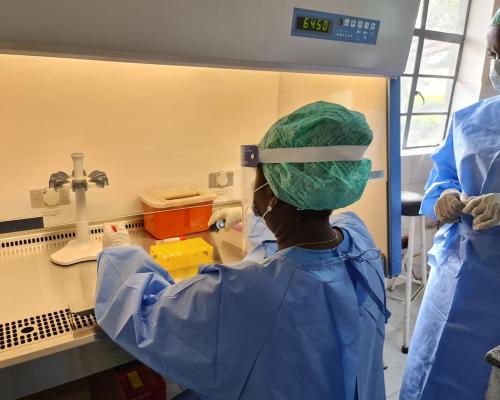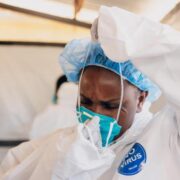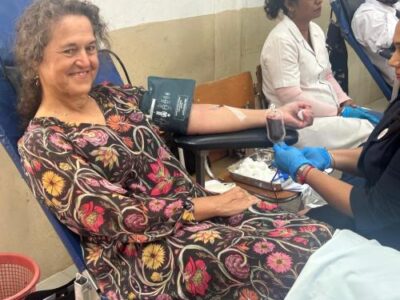
Despite global efforts, mpox remains a significant public health concern, with ongoing cases and outbreaks posing a threat, especially to those with weakened immune systems.
With generous support from the United States Agency for International Development (USAID), WHO has procured advanced polymerase chain reaction (PCR) testing kits to aid mpox detection. These kits equip the National Public Health Laboratory with essential tools to rapidly test and enhance detection of the virus.
USAID Acting Mission Director, Yohannes Araya, emphasized “The U.S. is committed to Global Health Security and improving the health of the people of South Sudan. We are pleased to partner with WHO to deliver these important mpox testing supplies to halt the spread of mpox.”
“Quick and reliable testing is the key to staying ahead of evolving health threats. These advanced testing kits make diagnosis easier and are strong tools in the fight against mpox and other viral threats,” said Dr Karamagi Humphrey, WHO Representative for South Sudan. “The kits enhance our ability to promptly detect and respond to outbreaks, thereby strengthening preparedness and response and ultimately saving lives.”
By utilizing high-performance PCR kits, responses to viral outbreaks are more efficient. This strategic investment is not just reactive but a proactive measure toward a safer future.
It is essential for individuals and communities to actively protect themselves by seeking testing and care if they show symptoms or suspect exposure to the virus. With the ever-evolving global health landscape, proactive steps such as practicing good hygiene, getting vaccinated, and staying informed about local health advisories are crucial in combating infectious diseases like mpox.
About mpox
Mpox is a viral illness caused by the monkeypox virus, a species of the genus Orthopoxvirus. Common symptoms include a skin rash or mucosal lesions, which can last 2–4 weeks and are accompanied by fever, headache, muscle aches, back pain, low energy, and swollen lymph nodes. Mpox can be transmitted to humans through physical contact with an infectious person, contaminated materials, or infected animals.
Technical Contacts:
Dr Aggrey Kaijuka BATEGEREZA, Email: bategerezaa [at] who.int (bategerezaa[at]who[dot]int)
Dr Abraham ABENEGO, Email: abenegoa [at] who.int (abenegoa[at]who[dot]int)











Comments